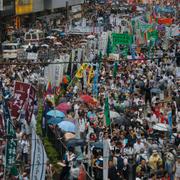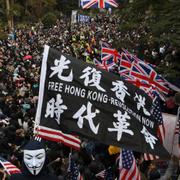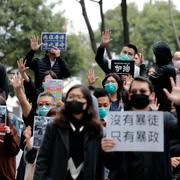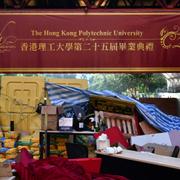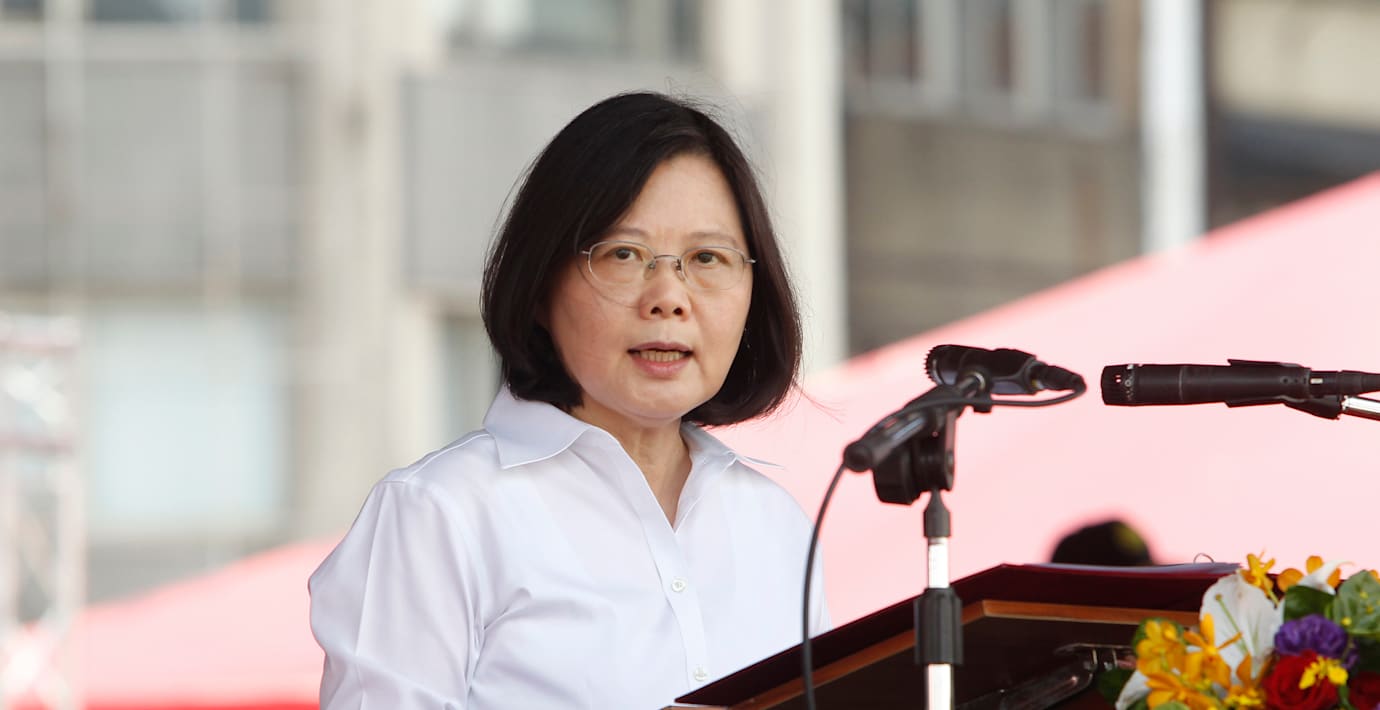
Taiwan fördömer domar mot aktivister i Hongkong
Taiwan fördömer fängelsedomarna mot de tre aktivister som ledde demokratidemonstrationerna i Hongkong 2014, skriver AFP.
Ställningstagandet väntas väcka ont blod i Kina, som anklagas för att stärka sitt grepp om halvt autonoma Hongkong. Både Taiwan och Hongkong ses som en nagel i ögat på Fastlandskina, med stora demokratidemonstrationer riktade mot Peking de senaste åren.
I ett uttalande skriver Taiwans råd för relationerna till Fastlandskina: ”Rådet upprepar regeringens långsiktiga ståndpunkt att stödja Hongkongs folks rätt till demokrati, frihet, rättsstatsprinciper och mänskliga rättigheter”.
bakgrund
”Ett Kina”-policyn
Wikipedia (en)
The One-China policy is the policy or view that there is only one state called "China", despite the existence of two governments that claim to be "China". As a policy, this means that countries seeking diplomatic relations with the People's Republic of China (PRC, Mainland China) must break official relations with the Republic of China (ROC, Taiwan) and vice versa.
The One China policy is also different from the "One China principle", which is the principle that insists both Taiwan and mainland China are inalienable parts of a single "China". A modified form of the "One China" principle known as the "1992 Consensus" is the current policy of the PRC government, and at times, the policy of the ROC government, depending on which major political party is in power. Under this "consensus", both governments "agree" that there is only one sovereign state encompassing both mainland China and Taiwan, but disagree about which of the two governments is the legitimate government of this state. An analogous situation existed with West and East Germany in 1949-90, North and South Vietnam in 1955-75, and with North and South Yemen in 1967-90, and also still exists today with North and South Korea, and has more recently started existing with the Syrian government and Syrian opposition.
The One-China principle faces opposition from supporters of the Taiwan independence movement, which pushes to establish the "Republic of Taiwan" and cultivate a separate identity apart from China called "Taiwanization". Taiwanization's influence on the government of the ROC has caused instability: after the Communist Party of China expelled the ROC in the Chinese Civil War from most of Chinese territory in 1949 and founded the PRC, the ROC's Chinese Nationalist government, which still held Taiwan, continued to claim legitimacy as the government of all of China. Under former President Lee Teng-hui, additional articles were appended to the ROC constitution in 1991 so that it applied effectively only to the Taiwan Area prior to national unification. However, recent ROC President Ma Ying-jeou has re-asserted claims on mainland China as late as October 8, 2008.
bakgrund
Paraplyprotesterna
Wikipedia (en)
The Umbrella Movement (Chinese: 雨傘運動) is a pro-democracy political movement that was created spontaneously during the Hong Kong protests of 2014. Its name derives from the recognition of the umbrella as a symbol of defiance and resistance against the Hong Kong Police, and the united grass-roots objection to the decision of the Standing Committee of the National People's Congress (NPCSC) of 31 August.
The movement consists of individuals numbering in the tens of thousands who participated in the protests that began on 26 September 2014, although Scholarism, the Hong Kong Federation of Students, Occupy Central with Love and Peace are groups principally driving the demands for the rescission of the NPCSC decision. Since the start of the 2014 protests, movement activists have complained of harassment from political opponents "alarmingly similar to the way mainland Chinese activists and their families have long been targeted".
Omni är politiskt obundna och oberoende. Vi strävar efter att ge fler perspektiv på nyheterna. Har du frågor eller synpunkter kring vår rapportering? Kontakta redaktionen
